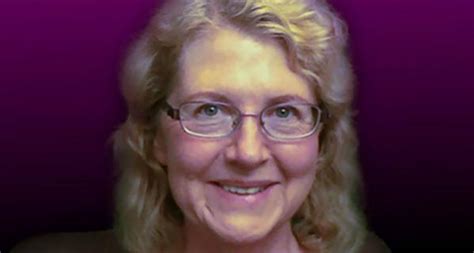A Quote by Mark Billingham
As crime writers, we put these characters, year after year, book after book, through the most horrendous trauma, dealing with grief and death and loss and violence. We can't pretend that these things don't affect these characters; they have to. If they don't, then you're essentially writing cartoons.
Related Quotes
About a year after (my stories began being published), magazine editor George Scithers, suggested to me that since I was so new at being published, I must be very close to what I had to learn to move from fooling around with writing to actually producing professional stories. There are a lot of aspiring writers out there who would like to know just that. Write that book.SFWW-I is that book. It's the book I was looking for when I first started writing fiction.
The Catholics have a Pope. Protestants laugh at them, and yet the Pope is capable of intellectual advancement. In addition to this, the Pope is mortal, and the church cannot be afflicted with the same idiot forever. The Protestants have a book for their Pope. The book cannot advance. Year after year, and century after century, the book remains as ignorant as ever.
The main characters for 'The Seer and the Sword' made an appearance one night and then haunted me for over five years before I began to write them down. Does that count as inspiration? For me, characters tend to show up, stay on to help with the work of writing their stories, and then occasionally deign to visit after a book is finished.
I don't pretend to understand him, but I can enjoy him as a poet and comedian. I liked the idea of the eternal return. Sometimes I think that being on tour year after year is an eternal return; you play a certain club in Copenhagen and then ten years later you are back again, traveling the same roads year after year.
There's this whole grey area seemingly every time it's talked about animators and who takes ultimate responsibility for the characters [of the Planet of the apes] but without question and I'll go down saying this year after year, these characters are authored by what we do on set. They are not authored by animators.
It's funny what [producer Richard Zanuck said about even though you can't quite place when the book or the story came into your life, and I do vaguely remember roughly five years old reading versions of Alice in Wonderland, but the thing is the characters. You always know the characters. Everyone knows the characters and they're very well-defined characters, which I always thought was fascinating. Most people who haven't read the book definitely know the characters and reference them.
People come, people go – they’ll drift in and out of your life, almost like characters in a favorite book. When you finally close the cover, the characters have told their story and you start up again with another book, complete with new characters and adventures. Then you find yourself focusing on the new ones, not the ones from the past.
The process of writing a book is infinitely more important than the book that is completed as a result of the writing, let alone the success or failure that book may have after it is written . . . the book is merely a symbol of the writing. In writing the book, I am living. I am growing. I am tapping myself. I am changing. The process is the product.






































